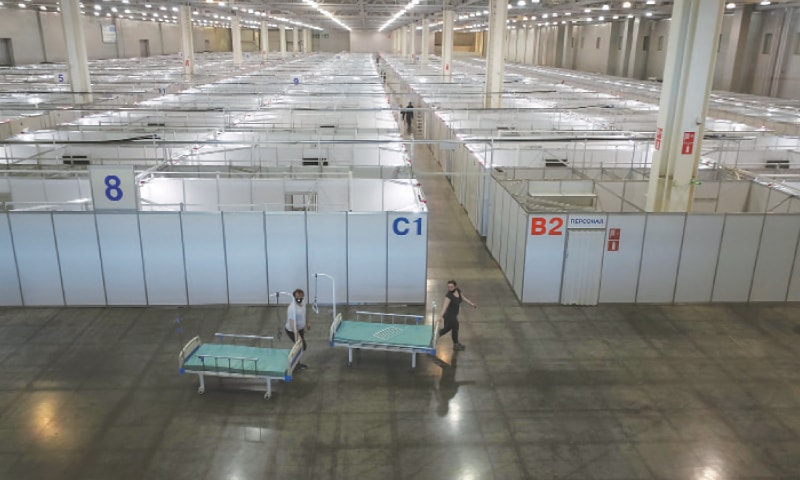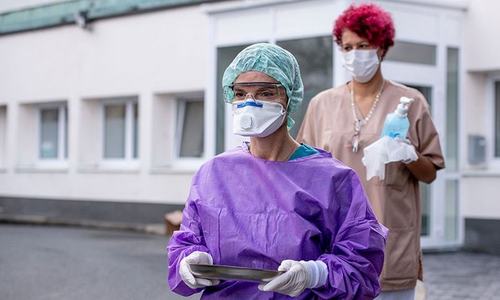PARIS: Swathes of Europe began the long process of reopening from coronavirus lockdowns on Monday, but a resurgence of infections in China and South Korea offered a sobering reminder of the dangers of a second wave of cases.
The mixed fortunes illustrate the high-wire act governments face across the globe as they try to resuscitate shattered economies while keeping in check a pandemic that has now killed more than 282,000 people and infected over 4.1 million.
As France and Spain embraced new freedoms and Britain plotted a path to normality, the Chinese city of Wuhan, where the pandemic was born, reported a second day of new cases after a month without a sign of the virus.
And South Korea announced its highest number of infections for more than a month driven by a cluster in a Seoul nightlife district.
With millions out of work and economies badly bruised, governments are desperate to hit the accelerator, but most are choosing a gradual approach as fears about a resurgence of the virus loom large.
In parts of Europe, officials have been emboldened by declining death rates, with France’s daily toll dropping to 70 on Sunday, its lowest since early April, and Spain’s daily fatalities falling below 200.
Spain embraced new freedoms after months under one of world’s toughest restrictions
The French were able to venture outdoors without filling in a permit for the first time in nearly eight weeks on Monday, and some shops reopened their doors. The wide boulevards of the Champs-Elysees in Paris were once again back to life with cars and shoppers waiting patiently to make purchases, but things were not as before.
Many Spaniards revelled in being able to visit outdoor terraces and cafes again after months under one of the world’s toughest lockdowns, although virus hotspots such as Madrid and Barcelona remain under wraps.
Shopping strips were once again populated in Greece, while in other parts of Europe from the Netherlands to Switzerland and Croatia youngsters headed back to the classroom after weeks at home.
Germany, too, has set in motion the reopening of shops, eateries, schools and gyms, but Chancellor Angela Merkel refreshed warnings to stay safe after official data showed the infection rate picking up speed again.
“It is necessary that we can have confidence that people are actually sticking to the basic guidelines, so keeping distance, covering mouth and nose, being considerate of each other,” she said on Monday.
In Britain, meanwhile, the government unveiled a “cautious roadmap” setting out new freedoms, which included outdoor exercise and allowing construction, manufacturing and other manual workers back on the job.
Almost seven weeks after a nationwide stay-at-home order was put in place, more than 31,800 people have died in Britain, a figure second only to the United States.
Russia took a similarly cautious approach and said some work could resume this week, even as daily cases hit over 11,000, a record high in the country, and deaths topped 2,000.
With governments across the world trying to avoid a second wave, Asian nations that were among the first engulfed by the virus but have since brought it to heel are being keenly watched.
Published in Dawn, May 12th, 2020














































